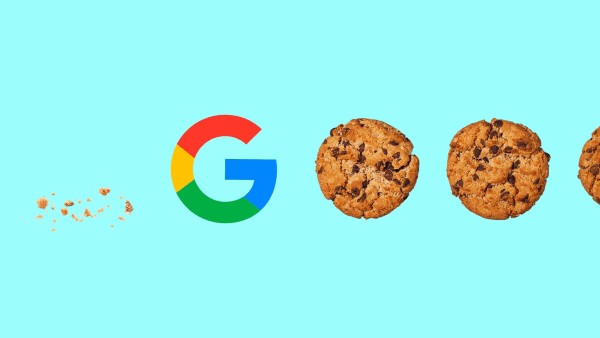In a plot twist worthy of a Hollywood blockbuster, Google has done a complete 180 on its plans to phase out third-party cookies. After four long years of promising to protect user privacy, the tech giant has abruptly decided to keep the online trackers alive and kicking. It’s a move that has left many scratching their heads and wondering what on earth is going on. Let’s break down what this means for you and me, the average internet user.
The Cookie Monster is Still Hungry
Third-party cookies are those pesky little digital trackers that follow you around the web, collecting information about your browsing habits. They’re used by advertisers to build detailed profiles of your interests and preferences, so they can serve you highly targeted ads. It’s like having a personal stalker who knows what you had for breakfast, what you bought last week, and what you’re thinking about right now.
For years, privacy advocates have been calling for the demise of third-party cookies, arguing that they invade our privacy and give corporations too much power. Google, once a champion of the anti-cookie crusade, seemed to be on board. But then, like a sudden change of heart, they decided to keep the cookie monster fed.
The Real Reason: Follow the Money
Why the sudden change of heart? Well, it’s no secret that Google is a massive advertising behemoth. In fact, nearly 80% of Google’s revenue comes from advertising. Third-party cookies are a crucial part of the advertising ecosystem, allowing advertisers to measure the effectiveness of their campaigns and target their ads with precision. By keeping third-party cookies alive, Google is essentially protecting its own bottom line.
It’s like a casino owner deciding to keep the slot machines rigged in their favor. Sure, it might not be fair to the players, but it’s certainly good for business.
Google’s decision to maintain support for third-party cookies becomes even clearer when examining the company’s financial health. The advertising behemoth has a stranglehold on the digital ad market, generating a staggering $64.6 billion in revenue last quarter alone. This financial prowess is a testament to the effectiveness of its current advertising model, which heavily relies on the data collected through third-party cookies.
To relinquish this data advantage by deprecating third-party cookies would be a monumental gamble. While AI-driven search alternatives pose a potential threat, Google’s deep pockets and vast data reserves give it a significant head start in this race. By maintaining its grip on the current advertising ecosystem, Google can continue to fund its AI research and development, ensuring it remains at the forefront of technological innovation.
Essentially, third-party cookies serve as the lifeblood of Google’s advertising empire. To sever this lifeline would risk destabilizing the entire business model. Given the company’s immense financial success and the uncertainties surrounding AI-driven alternatives, it’s no surprise that Google has chosen to prioritize the protection of its advertising revenue stream.
The Rise of the Tech Titans
Google’s decision to cling to third-party cookies is also part of a broader trend towards consolidation of power in the tech industry. With Apple, Google, and Facebook dominating the digital landscape, we’re seeing the emergence of what some call “walled gardens.” These are closed ecosystems where users are locked in and have limited choices.
Think about it. If you want to use an iPhone, you need an Apple ID. If you want to use most of the internet, you probably use Google Chrome. And if you want to connect with friends and family, you probably use Facebook. These companies have an incredible amount of data on us, and they’re using that data to build powerful monopolies.
What Can We Do?
It feels like every digital corner of my life is monitored and categorized. As an iPhone user, the most basic action, downloading an app, requires surrendering my Apple ID. It’s like handing over a digital key to my entire online existence. Once I grant access, I have no clear understanding of the extent to which Apple can track my activities across different devices. It’s a constant feeling of being watched, of my digital footprint expanding without my full consent. While it’s convenient to have my preferences synced across devices, the trade-off is a loss of privacy that feels increasingly intrusive.
This single action, as mundane as it seems, highlights the broader issue of data collection and surveillance in the digital age. It’s a stark reminder that our online behavior is meticulously recorded and analyzed, often without our full awareness or control. The erosion of privacy is a gradual process, and the seemingly innocuous act of downloading an app is just one piece of a larger puzzle.
It’s clear that the battle for online privacy is far from over. While we can’t do much about Google’s decision to keep third-party cookies around, we can take steps to protect ourselves.
- Use ad blockers: These extensions can help block annoying ads and reduce the amount of tracking that’s happening.
- Be mindful of your privacy settings: Take the time to review the privacy settings on your devices and social media accounts.
- Consider using alternative browsers: There are several privacy-focused browsers available, such as Brave and Firefox, that offer enhanced privacy features.
- Support organizations working to protect online privacy: Multiple groups are fighting for our digital rights. Consider donating to or volunteering with these organizations.
Ultimately, the power to protect our privacy lies in our hands. We can help to create a more private and equitable online world. We just have to take action and inform ourselves with relevant information.










